The Truth About Fad Diets and What to Do Instead
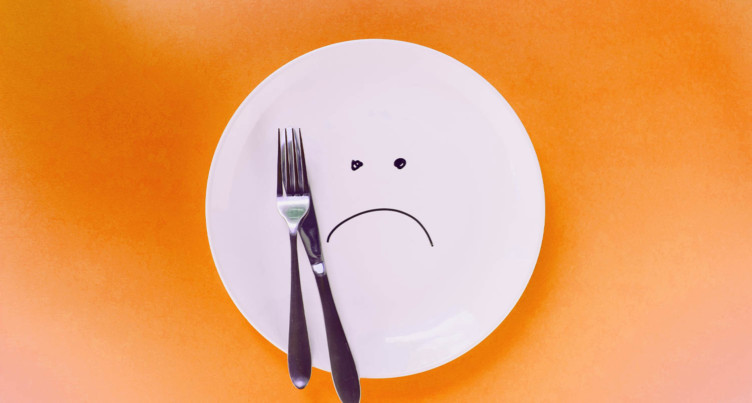
- Fad diets promise a quick solution to weight management in little to no time. But if it sounds too good to be true, it probably is.
- Fad diets include the tapeworm diet, the baby food diet and the air diet. They’re bad ideas because they can contribute to nutrient deficiencies and do more harm than good.
- Get the details on fad diets and why they don’t work. Then, find out how to build healthful, sustainable habits instead.
Year after year, fad diets explode onto the scene with big claims and not a lot of footing. They promise a quick solution to weight management and dramatic results in little to no time. The problem: If it sounds too good to be true, it probably is.
Even though it sounds tempting to lose weight without even trying, fad diets don’t work. Get all the details below, plus examples of the wildest fad diets. Then, learn how to build sustainable, healthful habits that last a lifetime.
What is a fad diet?
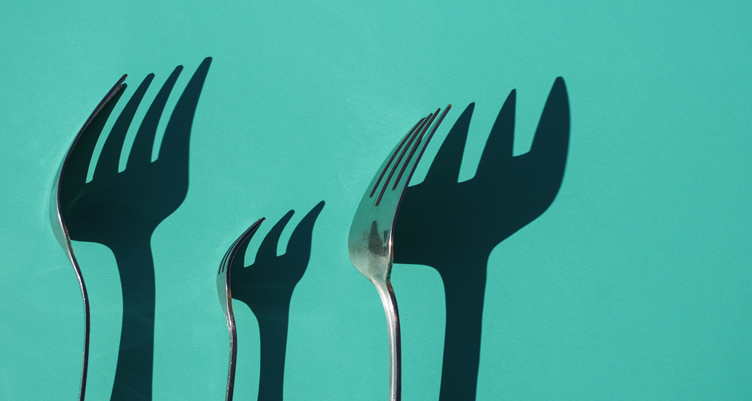
Broadly speaking, fad diets are ultra-restrictive, lower-calorie diets that promise major weight loss in a short amount of time.
They might ask you to only eat certain types of food, like jars of baby food or glasses of cayenne-tinged lemonade (more on that later). They don’t teach you why you’re making changes to your diet in the first place. And because they aren’t based on whole food nutrition, fad diets make you feel restricted, deprived and fatigued.
What about people who lose weight on fad diets?
In the short-term, you might lose a few pounds on certain fad diets. Usually, this happens because you lose water weight. Without enough food in your system, your body dips into your glycogen stores for energy. Glycogen is a form of fuel your body stores in your liver and muscles.[1] For every gram of glycogen stored in your muscles and fat, about 3 grams of water are stored with it.[2] Less glycogen means there’s less water in your system, which can result in fewer pounds on the scale.
This isn’t meaningful weight loss. You aren’t losing fat or building muscle. Once you return to your regular diet after the fad diet is over, you’ll likely return to your regular weight. And because fad diets tend to be so restrictive, you might be doing more harm than good.
Dramatically cutting calories can increase cortisol levels (your stress hormone), interfere with your hunger hormones and slow down your metabolism — all of which may actually make you gain weight.[3] [4] [5]
How fad diets work
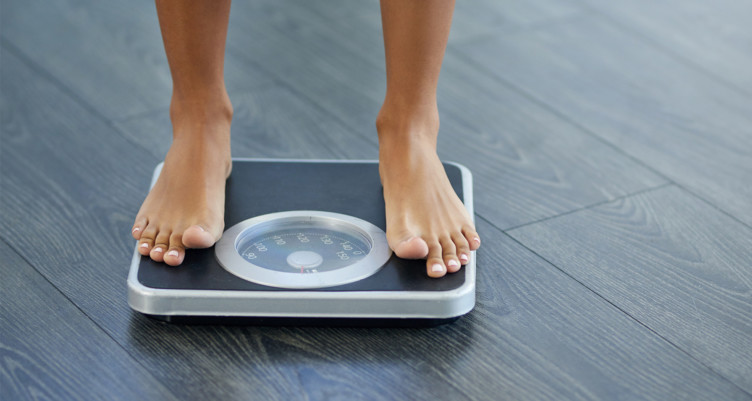
Here are some tell-tale signs that you’re dealing with a fad diet:
- Rigid rules: Only eat five bites per meal. Only consume wine, steak and eggs. Eat a literal tapeworm. These are all real fad diets we’ll talk about below, but they all have one thing in common: Instead of recommending balanced, whole food nutrition, they create seemingly random “rules” to promote rapid results. Yeah. No thanks.
- Eliminates food groups without explaining why: You need protein, carbohydrates and fats to fuel your entire body. Some people feel better when the cut back on some foods, like gluten or dairy. Some people thrive with more fat and fewer carbs, like the keto diet. But tread carefully around any diet that asks you to abandon entire food groups without backing up those claims.
- Assigns “good” and “bad” labels to foods: Foods have no moral values. A donut is just a donut. All foods exist on a spectrum: Some are more nourishing than others and should take up most of your diet, like vegetables, quality fats and proteins. Learn how to navigate the best foods for your body with the free Bulletproof Diet Roadmap.
- Severely restricts calories: Yeah, you might drop some weight if you severely cut calories. But this is an extreme, unhealthy and unsustainable approach. You need calories to function. The specific amount, and where you get them from, depends on your individual dietary needs.
Examples of fad diets
1. Tapeworm diet

The theory:
- A person swallows a pill containing a tapeworm egg.
- The parasite grows in the dieter’s intestines and eats part of whatever the host eats.
- The dieter loses weight without changing their diet.
The tapeworm diet has roots in the Victorian era — the same era that promoted makeup laced with lead paint and corsets that smashed internal organs into submission. The “tapeworm diet” is more appropriately named a “tapeworm infection,” also known as a “very bad idea.” It can lead to serious complications like abdominal pain, nausea and tissue and organ damage.[6] There is no magic pill for weight loss. Not even tapeworms.
2. Baby food diet
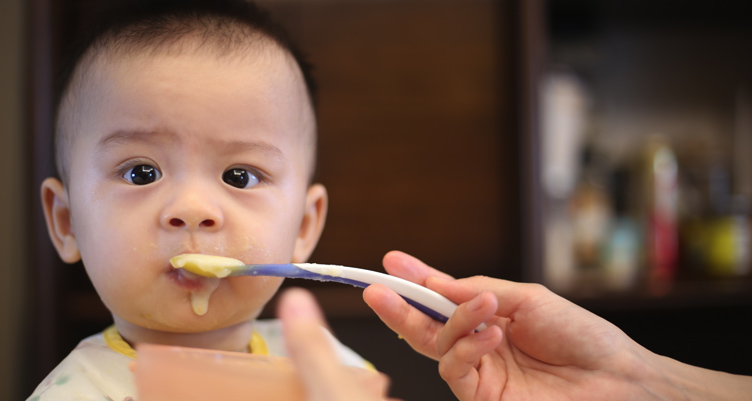
The theory: The rules vary, but you replace regular meals with jars of baby food for a prescribed period of time. (Tiny spoon optional.)
Celebrities have admitted to versions of this diet, and it’s commonly attributed to celebrity trainer Tracy Anderson. The problem is that baby food isn’t designed for the nutritional needs of adults, and you’ll be hard-pressed to hit enough of your macronutrient needs (or get enough fiber) to feel your best. Any weight loss on this diet comes from severe calorie restriction and tastebud boredom. How many jars of mashed peas can you really stomach?
3. Cotton ball diet

The theory: Dieters dip cotton balls in juice and eat them in order to feel full without actually eating real food.
This is the equivalent of eating nothing at all, with the added risks of choking and causing a severe blockage in the digestive system. Just say no.
4. Five-bite diet

The theory: Skip breakfast. Eat whatever you want for lunch and dinner. The only catch: You’re limited to just five bites.
The five-bite diet is portion control to the extreme. Like any diet that involves severely cutting your calories, you might feel lighter on the scale in the short-term — but it’s unsustainable because you aren’t fueling your body with adequate nutrition.
5. HCG diet

The theory: The HCG diet involves severe calorie restriction and consuming products that contain HCG, a hormone that is produced during pregnancy.
This diet started in the 1950s, faded in the 1970s and experienced a resurgence in the past decade.[7] Today, over-the-counter HCG products are literally banned by the FDA because the diet is a “reckless way to shed pounds.”[8]
6. Liquid diet

The theory: Drink all your meals (or most of them).
Your doctor might recommend a liquid diet if you’re prepping for a medical procedure or dealing with nausea. This is temporary. Any diet that asks you to live on liquids for an extended period of time is robbing you of essential nutrients, like fiber and protein.
7. Lemonade diet

The theory: For at least 10 days, your biggest source of sustenance is lemonade made with maple syrup and cayenne pepper.
Beyoncé allegedly followed a version of this diet to prepare for her role in Dreamgirls. This does not mean the lemonade diet is a good idea. Because you’re only consuming acid and sugar, you’ll feel lousy and listless — not very Beyoncé.
8. Sacred Heart diet
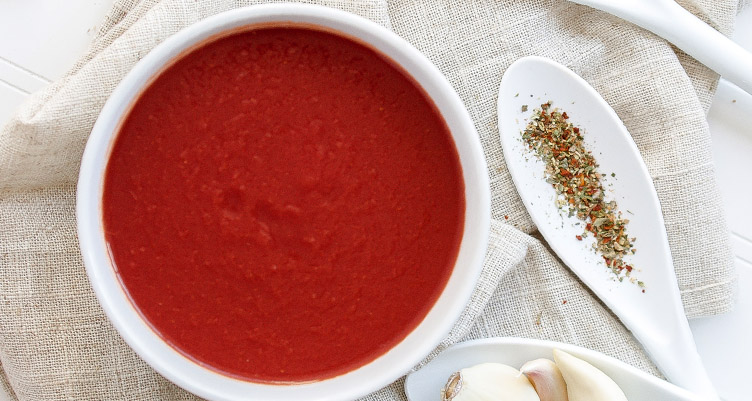
The theory: For seven days, eat as much vegetable soup as you want. On certain days, eat specific foods (like three bananas on day four) and avoid others, like no baked potatoes on day three.
Despite its seemingly random rules, the Sacred Heart diet is another lower-calorie fad diet without significant evidence to support its claims. It’s also shockingly difficult to follow and unsustainable for most people, which means any results are likely temporary.
9. Scarsdale diet
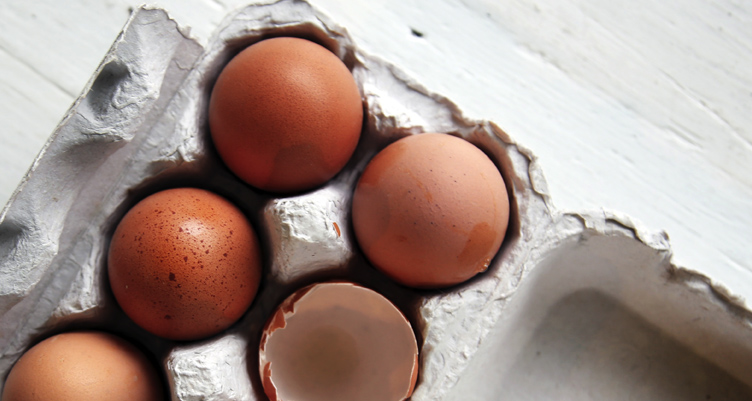
The theory: For seven to 14 days, follow a highly specific meal plan that is high in protein and lower in fat and carbohydrates. Dieters eat no more than 1,000 calories per day.[9]
The Scarsdale diet was developed by Herman Tarnower, MD, in the 1970s. Like other fad diets, the rigidity of the meal plans and shockingly low calorie counts might make you trim a few pounds — but you risk nutrient deficiencies long-term. No thanks.
10. Air diet

The theory: Dieters only consume air, light and nothing else.
Also known as the “Breatharian Diet,” this is permanent fasting. It’s not a good idea. People have died following this diet.[10] Please eat food.
11. Wine and egg diet

The theory: For three days, consume only eggs, steak, white wine and black coffee.
Written by Helen Gurley Brown in her 1962 advice book Sex and the Single Girl, the diet might sound like a dream. Steak! Eggs! Wine! Coffee! But in reality, it’ll just leave you feeling fatigued and buzzed. Read about this diet instead — and don’t try it yourself.
12. Fruitarian diet

The theory: Eat mostly fruit. Forever.
Any diet that tells you to eat only one type of food is a recipe for malnourishment.[11] Fruit is great in moderation. But you need a lot of other foods — aka vegetables, proteins and quality fats — to feel your best.
Disclaimer: Please don’t try any of these fad diets. They’re all bad ideas. Talk to your doctor before you make any big changes to your diet and routine.
What to do instead
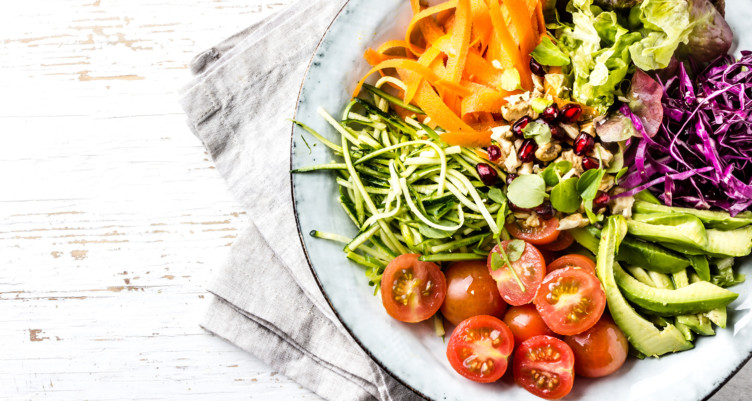
Your diet shouldn’t make you feel deprived, tired and hungry. Your diet is the food you habitually eat. Some foods will make you feel better than others, like eating a plate of steamed vegetables and grass-fed steak instead of a plate of nachos. Other foods should be eaten in moderation (like nachos).
Broadly speaking, if you want to manage your weight, boost your energy and feel more awesome, start here:
- Cut back on processed foods and sugar
- Eat a diverse array of whole foods (think vegetables and proteins, not packaged foods and snacks)
- Drink more water
- Improve your sleep quality
- Move more often
- See how you feel without common problem foods, like dairy and gluten
These can feel like big changes, but you don’t have to do them all at once. Being Bulletproof is about making small changes that add up over time. Maybe you commit to drinking water with every meal. Maybe you eat a vegetable with every meal. Over time, those choices become habits, and those habits become the foundation of healthful living.
Ready to get started? Get more energy with the Bulletproof 30 Day Upgrade: 30 days of free information and delicious recipes to be the best version of yourself, all in one simple guide.
Read next: How to Increase Your Metabolism Without Pills or Boosters
Sign up for early access to sales, product launches, the latest Bulletproof news and more!



